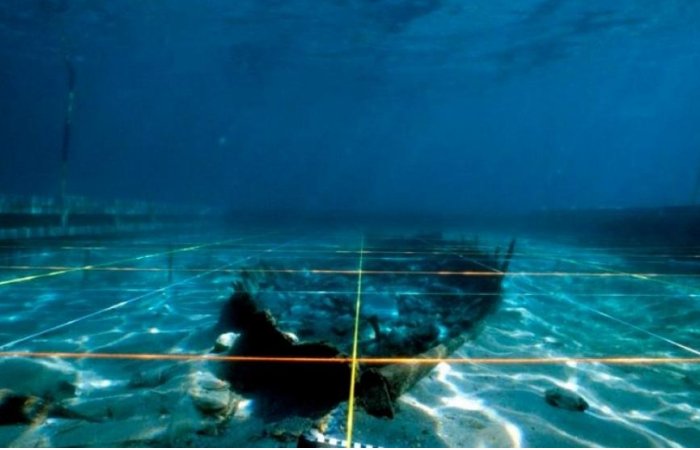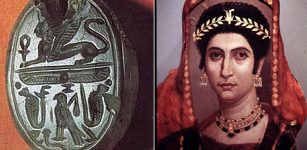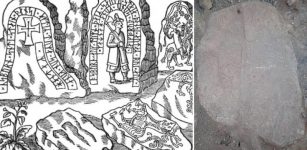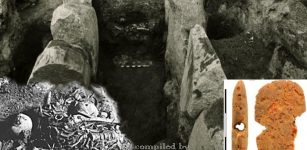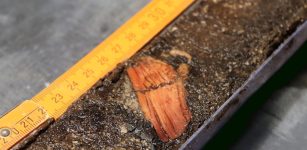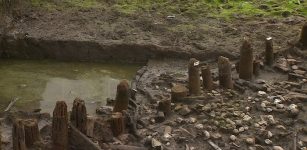2,500-Year-Old Phoenician Shipwreck Being Rescued By Archaeologists
Jan Bartek - AncientPages.com - A 2,500-year-old Phoenician shipwreck has been discovered underwater in the southeastern Spanish region of Murcia. Spanish archaeologists are now working hard to recover the ancient shipwreck from the sea before a storm destroys it forever.
This remarkable archaeological find, known as the Mazarrón II measures eight meters in length and was named after the region where it was found. The ship is of great archaeological value and a unique piece of ancient maritime engineering.
The Mazarrón II shipwreck. Credit: El Ministerio de Cultura
If scientists can retrieve the shipwreck, they will be able to learn more about the Phoenicians’ transportation of metals, such as lead, from the Iberian Peninsula.
Nine technicians from the University of Valencia have spent 560 hours underwater documenting all the cracks and fissures in the ship, which lies 60 meters (66 yards) from the Mazarrón’s Playa de la Isla.
Spanish archaeologists have made a detailed diagrams of a 2,500-year-old Phoenician shipwreck to help work out how best to recover it from the sea before a storm destroys it forever#PhoenicianShipwreck #Phoenician #Shipwreck pic.twitter.com/6XVTdx9jQz
— News18 (@CNNnews18) June 30, 2023
Later this year, the experts will recommend how to protect and retrieve the wreck, possibly as early as next summer.
It could be extracted piece by piece using the existing cracks and reassembled out of the water like a puzzle, said archaeologist Carlos de Juan from the University of Valencia-Institute of Nautical Archaeology, who coordinated the project.
“It is more reasonable to rescue the ship, treat it and exhibit it in a museum for people to enjoy it, rather than worrying every time a big storm arrives,” he told Reuters.
As previously discussed on Ancient Pages, "although many Greek, Roman, and Egyptian writers mention the Phoenicians in trade records and military battles, only a few records were left by the original Phoenicians themselves, leaving modern scholars to fill in the blanks through these educated guesses and material culture.
Scholars still debate when the Phoenicians became powerful, where they came from, and how they came to be such excellent navigators and successful merchants who managed to colonize much of the Mediterranean region.
Based on archaeological discoveries, most scientists agree that Phoenicians, from coastal areas of present-day Lebanon and Syria, established colonies and trading posts throughout the Mediterranean from 1,500 B.C to 300 B.C.
The 2,500-year-old Mazarrón II shipwreck will reveal more about Phoenicians trading. As reported by Reuters, after it sank, it remained buried in sediment for more than two millennia until changes in sea currents due to construction on the shore unearthed it almost 30 years ago.
See also: More Archaeology News
It now lies under about 1.7 meters (5.6 ft) of crystal-clear Mediterranean water, surrounded by sandbags and a metal structure built for protection. The structure is sinking into the sand at a faster pace than the wreck and threatened to crush it, so has had to be partially removed."
Time is running out, but hopefully, scientists will be able to recover the shipwreck before its destroyed.
Written by Jan Bartek – AncientPages.com Staff

